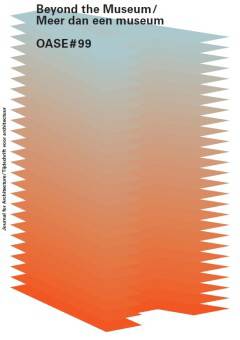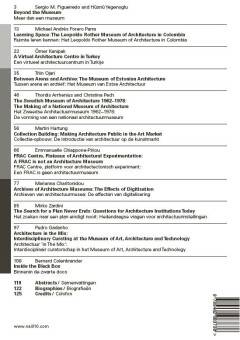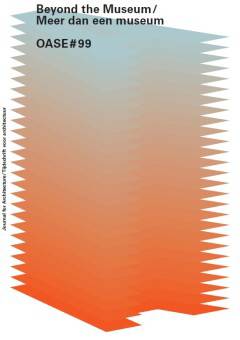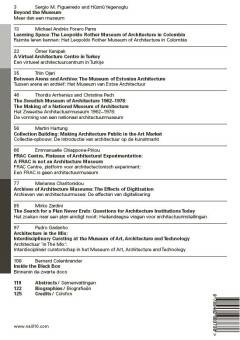
- Afhalen na 1 uur in een winkel met voorraad
- Gratis thuislevering in België vanaf € 30
- Ruim aanbod met 7 miljoen producten
- Afhalen na 1 uur in een winkel met voorraad
- Gratis thuislevering in België vanaf € 30
- Ruim aanbod met 7 miljoen producten
Zoeken


Omschrijving
Recent developments show a shift in the themes that architecture museums programme: apparently, social and activist subjects are supplanting classical architectural themes. It is a development expressed by recent exhibitions of both renowned institutes and younger ones. By the looks of it, thematic choices are furthermore increasingly influenced by the social and political contexts of institutes. In terms of storage, new developments such as digitization also lead to radical changes, with consequences that are difficult to predict. OASE 99 analyses and questions these developments and their impact on the current and future role of architecture museums.
OASE provides the context for understanding the current situation and examines what part architecture museums can play in the future of architecture culture.
OASE provides the context for understanding the current situation and examines what part architecture museums can play in the future of architecture culture.
Specificaties
Betrokkenen
- Auteur(s):
- Uitgeverij:
Inhoud
- Aantal bladzijden:
- 128
- Taal:
- Engels
- Reeks:
- Reeksnummer:
- nr. 99
Eigenschappen
- Productcode (EAN):
- 9789462083738
- Verschijningsdatum:
- 1/11/2017
- Uitvoering:
- Paperback
- Afmetingen:
- 170 mm x 240 mm
- Gewicht:
- 283 g

Alleen bij Standaard Boekhandel
+ 49 punten op je klantenkaart van Standaard Boekhandel
Beoordelingen
We publiceren alleen reviews die voldoen aan de voorwaarden voor reviews. Bekijk onze voorwaarden voor reviews.









